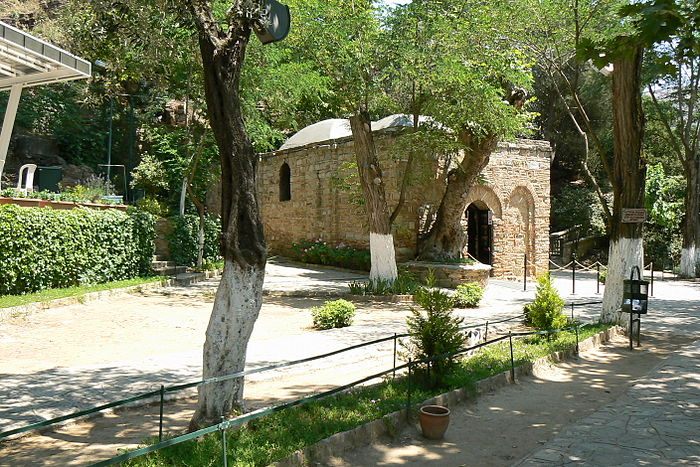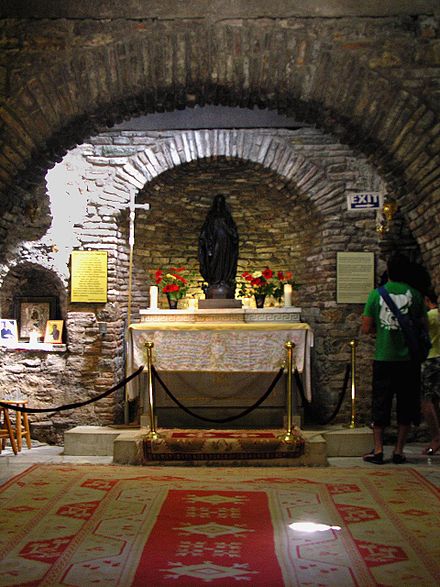Untying the Knot in Turkey
It is warm and sunny today in Ephesus, Turkey. Coming from Alaska, I cannot get enough of the sun, but I am missing the wind. Three Muslim women in head scarves and silky dress coats stand before me, conferring. Then one turns and asks, anxious, "Are these waters holy?" I don't know what to say to her. A man standing near hears her and answers "Yes, many believe these waters are holy." She looks relieved and steps toward one of the three faucets spouting from the stone wall. What will she pray for as she washes her hands in the water?
We are here together, Christians and Muslims of all kinds, from Asia, from the Middle East, our small group from the U.S. We're at the House of Mary, where many believe the mother of Jesus lived out her last days with the disciple John. (And who is not moved to remember that Christ, hanging crucified and close to death, looked upon his friend John and his beloved mother and gave them to one another as mother and son. From then on, the gospel tells us, John "took her into his house.")
Muslims are here because Meryem is the mother of the prophet Jesus, and so is holy in some way. I go into the House of Mary where a statue stands in the center of the wall, a candle burning. Muslim women in headdresses bow, kneel in prayer. There are maybe 11 of us in this room. In the quiet I feel the heaviness of these women's needs. No one speaks.
Is this tiny stone chapel, this two room shrine the place where John and Mary lived together, living out every day the words and new life Jesus taught them? No one can know. There is a long story behind the choice of this ancient nondescript dwelling, but I will not tell it here. I have stopped my travel this day to write these words, to show you this one more thing, this one place where dreams and wishes and prayers become a wall.
It is called The Wishing Wall. Prayers and hopes are written on napkins and tissues and tied to the iron grating. I see words written in Korean, Arabic, Chinese, English, Spanish and many others. There are ribbons tied here too, as well as socks, plastic shopping bags, whatever people brought, whatever they pulled from their pockets.
A priest, a friend, traveling with us, tells us that Mary is sometimes called "The Untier of Knots." It was St. Irenaeus in the second century who wrote that "the knot of Eve's disobedience was untied by the obedience of Mary; what the virgin Eve bound by her unbelief, the Virgin Mary loosened by her faith."
I think of the Turkish rugs made by thousands of Turk women in small villages, women sitting before cotton strands, knotting every thread of wool and silk twice. Twice, so the knots cannot be pulled out.
This day, standing before the Wishing Wall, I am grateful for Mary, but I did not knot a tissue for her. I said a prayer instead to her Son for all the broken choking hearts longing for what Jesus came to give. He gives it still, his forgiveness flowing like water from a faucet, his love freeing knotted hearts to float like tissues on a vast warm wind.







